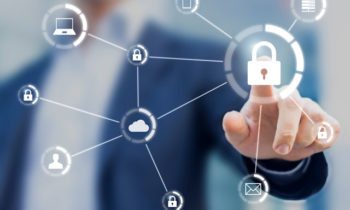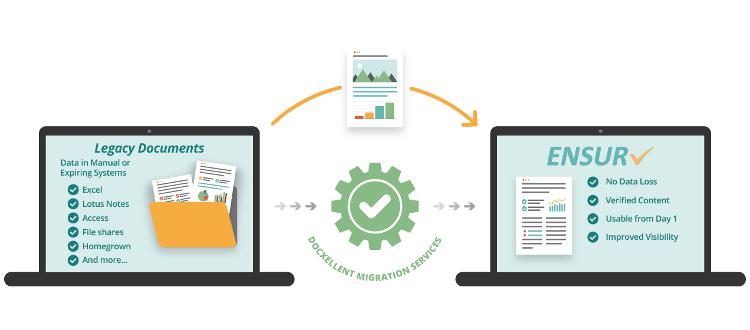-png.png)
Due to the rise of remote work policies stemming from the COVID-19 pandemic, in person laboratory auditing has been nearly impossible over the past year. Reacting to these difficulties, the FDA announced in March of 2020 that they would be scaling back domestic inspections and instead relying on reviewing companies remotely. In this article we’ll discuss the new trend of remote auditing, help you decide if this process is right for your laboratory, and give you some tips on how to prepare for one.
What is a Virtual Audit?
A virtual audit is a great tool for companies operating remotely. As the name suggests, remote audits are performed entirely online using methods such as video conferencing, email, and telephone to obtain audit evidence. These types of inspections include everything a traditional one would, just without the face-to-face contact. This allows companies to remain compliant without performing an audit in person.
Is a Virtual Audit Right for Your Laboratory?
The first step in the virtual audit process is determining if this type of inspection is right for your laboratory. And to do that, it is important to weigh the pros and cons of performing an inspection virtually.
Benefits of a remote audit
When administered correctly and properly prepared for, remote auditing can offer many benefits to your company in addition to helping you stay within regulatory standards. Let’s take a look at some of the most relevant benefits.
-
- Time and cost savings: In the age of cloud computing, companies have the option to make their data available to stakeholders from anywhere at any time. This means that auditors and employees preforming an audit don’t need to be in an office setting to prepare or conduct an inspection. Performing an audit remotely eliminates an unnecessary commute and allows team members to take back travel time to focus on audit preparation. In addition, performing an audit remotely removes any expectation placed on your company to cover travel expenses for the auditors.
- Better for your records: Because remote audits are conducted via video conferencing, you have the ability to record the auditing sessions. These videos can be kept in your company records and referenced to track your company’s progress over time.
- Increased security and transparency: Utilizing cloud technology during your audit is a great way to ensure robust security and total transparency. In a normal in-person inspection, management and administration may not have access to the audit report. However, with remote auditing, audit reports are required to be stored in secure centralized clouds. The auditors give real-time insight, and the managers get authentic reports on their certification audits. In addition, only the customer and the auditor have access to the audit reports, ensuring the reports’ security.
Disadvantages to a remote audit
Although remote auditing is convenient in these unprecedented times, there are some drawbacks that your company should take into consideration.
-
- Technological barriers: One issue that your laboratory could run into during a virtual audit is the logistics, depending on the location of each employee and auditor involved in the inspection. There can be log in issues when trying to show documentation and network connections are not always reliable. These barriers lead to interrupted meetings and lagging audit sessions.
- Approval from certification and accreditation bodies: Although most regulatory bodies consider remote audits totally legitimate, not every organization does. Some have concerns about performing an entire audit without visiting the location, and certain doubts about the reduction of on-site hours that would be spent in virtual work. Therefore, it is important to investigate the organization that will be conducting your inspection to make sure they allow virtual inspections.
- Lack of involvement: Virtually meeting for audit sessions can cause issues with attendance and proper prioritizing from employees. Some process managers may become unavailable because of previously scheduled meetings or lose attention and attempt to perform other tasks while the audit is being conducted. Your leadership can play a big role here, delivering awareness sessions for their employees and preparing employees with the tools necessary to be remotely audited.
While remote audits are convenient and efficient, they are not right for every laboratory. When deciding if a remote audit is right for your company, it is necessary to take these advantages and disadvantages into consideration.
How can you prepare?
If you decide remote auditing would benefit your company, the next step is to spend ample time preparing. While the process will be similar to the traditional inspection you’re accustomed to, there are important disparities. Here are three audit elements to properly prepare before your audit day.
1) IT preparation
Like mentioned earlier, technological issues can be a major barrier to conducting an efficient remote audit. That’s why it’s important to prepare your IT process as well as possible. Have your IT team identify potential problems in the project plan and make any necessary policy or technical adjustments.
In addition, don’t be afraid to have an open line of communication with your auditors. Discuss with them which online conference system and means of communication will be used and ensure that they meet your company’s cyber-security measures for confidentiality, security, and data protection. Both parties need to have proper IT and cybersecurity processes in use for your remote audit to run smoothly.
2) Legal agreements
Next, be sure to sign any necessary legal documentation regarding the recording of your remote audit. If your company does choose to keep a recording for your records, you will need both the consent of all participants as well as a breakdown of security protocols and conditions for storage and deletion. When seeking consent, remember to specify whether you will be recording sound, video or both. If you rely on recordings to document the findings, make sure there is a way to determine who said what.
It is also important to remember that if you and the auditor do legally agree that the sessions can’t be recorded, it is still possible for those involved to break these rules and take screenshots or capture the session in some other way. This would be a serious breach of confidentiality and security. For this reason, your remote audit requires a level of trust between the auditor and the auditee.
3) Internal document review
Before any audit begins, it is always necessary to gather and review the documentation you’ll need to present to the auditor. However, during a remote inspection you will obviously be showing your company data over video call, and you’ll be utilizing virtual files. For this reason, it is important to efficiently organize your documents virtually so you can pull up any data your auditor requests. In addition, determine if there is anything that needs to be sent to the auditing body ahead of the actual audit session. This preparation will help prevent unnecessary inefficiency and allow the audit to run as smoothly as possible.
Remote audits are becoming increasingly popular in the laboratory industry. It seems that this practice is here to stay due to the benefits they offer both auditees and regulatory bodies. If your company is looking to conduct a virtual audit in the near future, utilizing a cloud-based Quality Management System (QMS) like ENSUR is the perfect way to prepare. A QMS software offers the following benefits to help your remote audit run smoothly:
-
- Give secure and controlled system access to auditors from anywhere in the world
- Validated software that complies with numerous standards & regulations
- Track your content's compliance to regulated standards right inside the system
- Download documents & reports instantly
- Organize documents into electronic binders
- Track your audit responses through action items, Incident reports
A system like this allows your company to take a proactive and transparent approach to reviewing policies & procedures, training programs, document reviews and audit responses, demonstrating your company’s dedication to quality. A QMS software will help you quickly and confidently prepare materials needed for your virtual regulatory audit. To learn more, contact DocXellent today.




























